Kremlin warns Biden sending rockets to Ukraine 'adding fuel to the fire'
The president said he did not want to spark a wider conflict.
The Kremlin said Wednesday that President Joe Biden's plans to send advanced rocket systems to Ukraine was "adding fuel to the fire."
"We know that the United States has been purposefully and meticulously adding fuel to the fire," Kremlin spokesman Dmitry Peskov said, according to the Russian news agency Interfax. "The United States pursues the course towards fighting Russia to the last Ukrainian."
Biden said Tuesday the U.S. would provide advanced rocket systems to help Ukraine defend itself, as Russia's invasion nears the 100-day mark.
"We have moved quickly to send Ukraine a significant amount of weaponry and ammunition so it can fight on the battlefield and be in the strongest possible position at the negotiating table," Biden wrote in an opinion piece in The New York Times. "That's why I've decided that we will provide the Ukrainians with more advanced rocket systems and munitions that will enable them to more precisely strike key targets on the battlefield in Ukraine.
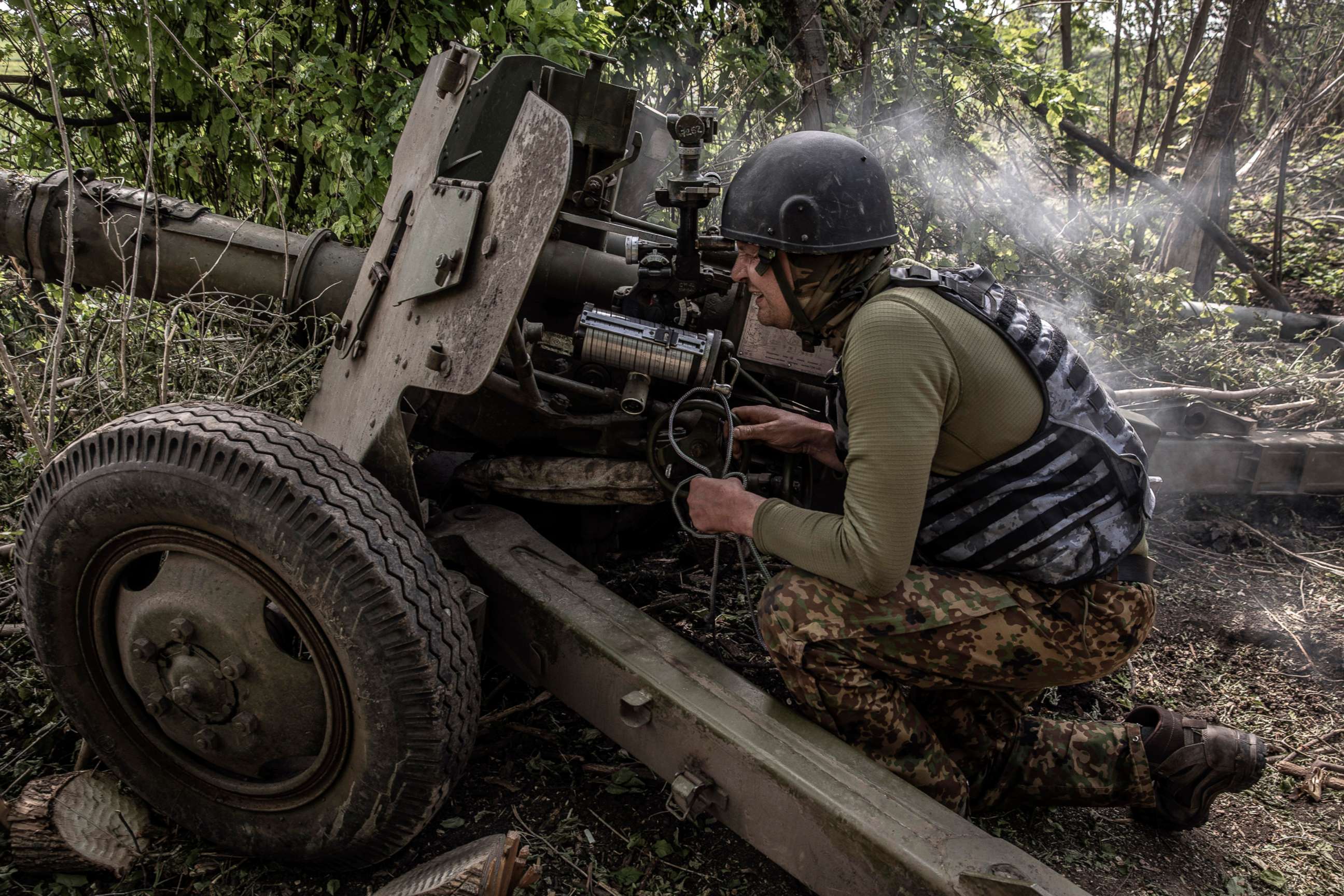
Russia's foreign minister, Sergei Lavrov, said Wednesday that if Ukraine receives multiple-launch rocket systems from the West there were "risks" of a third country becoming involved in the conflict, according to Interfax. "Such risks, of course, exist," he told reporters, responding to a question, according to Interfax.
The White House principal deputy national security adviser, Jonathan Finer, said Wednesday morning that "Russia has brought this on itself."
"We don't negotiate our security assistance packages to Ukraine with the Kremlin," Finer said during an interview with CNN, adding that Biden had warned Russian President Vladimir Putin "directly" that if he "launched a new, renewed invasion of Ukraine, the United States would increase the amount of security assistance we were providing, including new and advanced systems."
"They have not been pleased by the amount of security assistance we've been providing to the Ukrainians, frankly, since far before this most recent phase of the conflict began," Finer said.
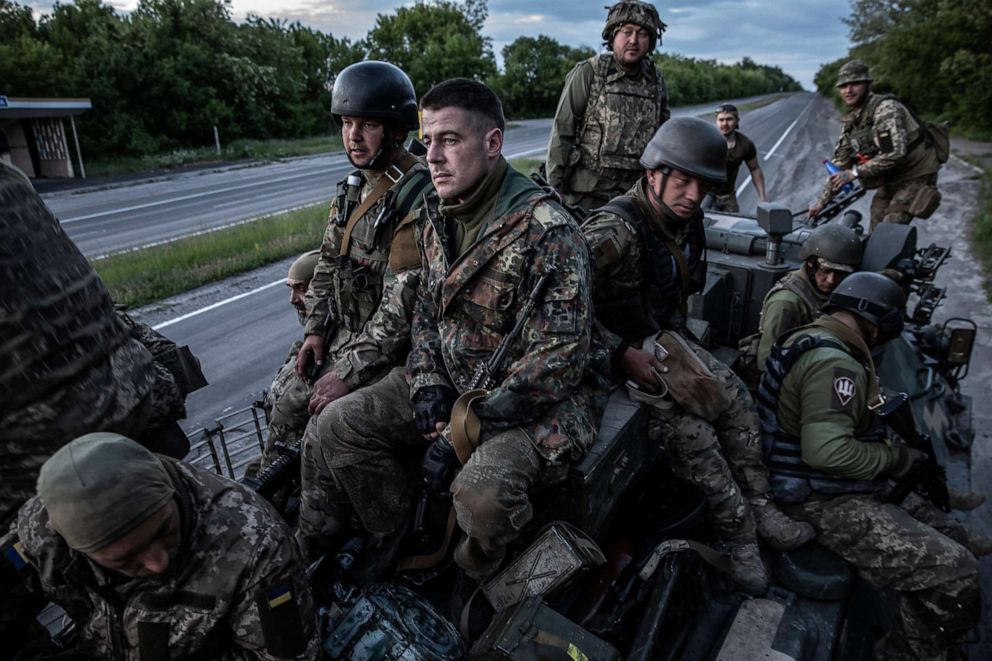
The United States will send high mobility artillery rocket systems (HIMARS), which will enable the Ukrainians to "more precisely strike key targets on the battlefield from a greater distance inside Ukraine, and to help them repel Russians," a senior Biden administration official told reporters Tuesday.
The missiles will be provided as part of a new $700 million security assistance package for Ukraine -- the 11th of its kind from the U.S. -- which will also include additional Javelin anti-tank missiles, helicopters, tactical vehicles and artillery rounds.
The HIMARS is a longer-range rocket system that can fire munitions up to 190 miles.
But the munitions the U.S. plans to provide Ukraine have a maximum range of around 43 miles, according to Pentagon officials.
Officials say they wanted to limit the range so that the weapons would be used on the battlefield in eastern Ukraine but not fired farther into Russia itself.
Secretary of State Antony Blinken said Wednesday the weapons systems were "precisely what they need to defend themselves against the ongoing Russian aggression."
NATO Secretary-General Jens Stoltenberg, standing alongside Blinken in Washington, said the United States' support was "making a difference on the battlefield every day," and called the latest round of assistance "a demonstration of real U.S. leadership."
As Russia has shifted its invasion to the east of the country, Ukrainian fighters have found themselves outgunned by a Russian military with more powerful artillery.
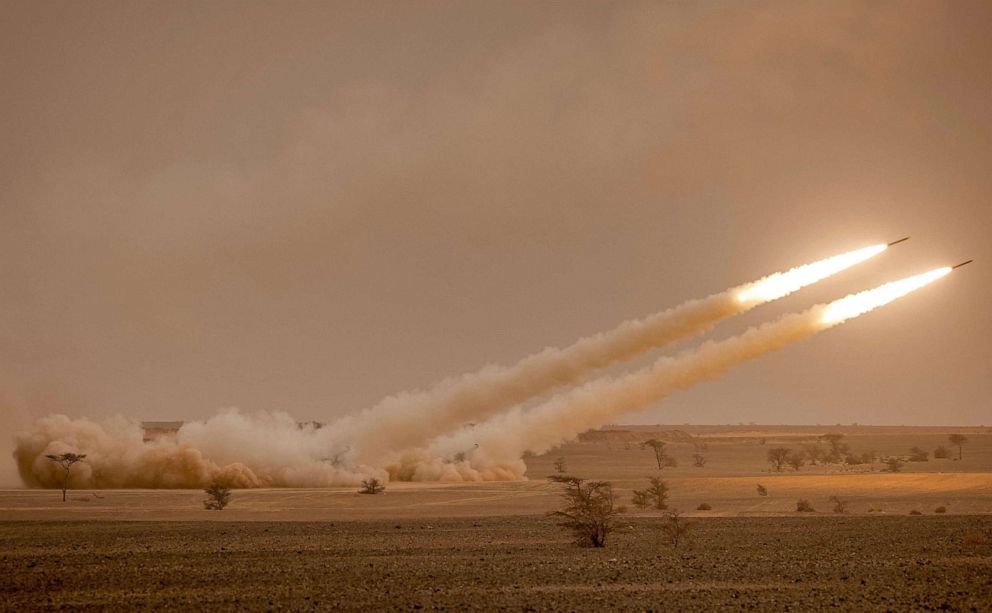
Ukraine has struggled to push back Russian advances, and its leaders have long asked the U.S. to send more powerful guns.
"We need more heavy weapons delivered as soon as possible, especially MLRS, to repel Russian attacks," Ukraine's foreign minister, Dmytro Kuleba, tweeted last week, referring to multiple-launch rocket systems.
An official stressed Tuesday that the Ukrainians had given the United States "assurances they will not use" the new systems the U.S. is providing "against targets in Russian territory."
"The Ukrainians have given us assurances that they will not use these systems against targets on Russian territory," Blinken said Wednesday.
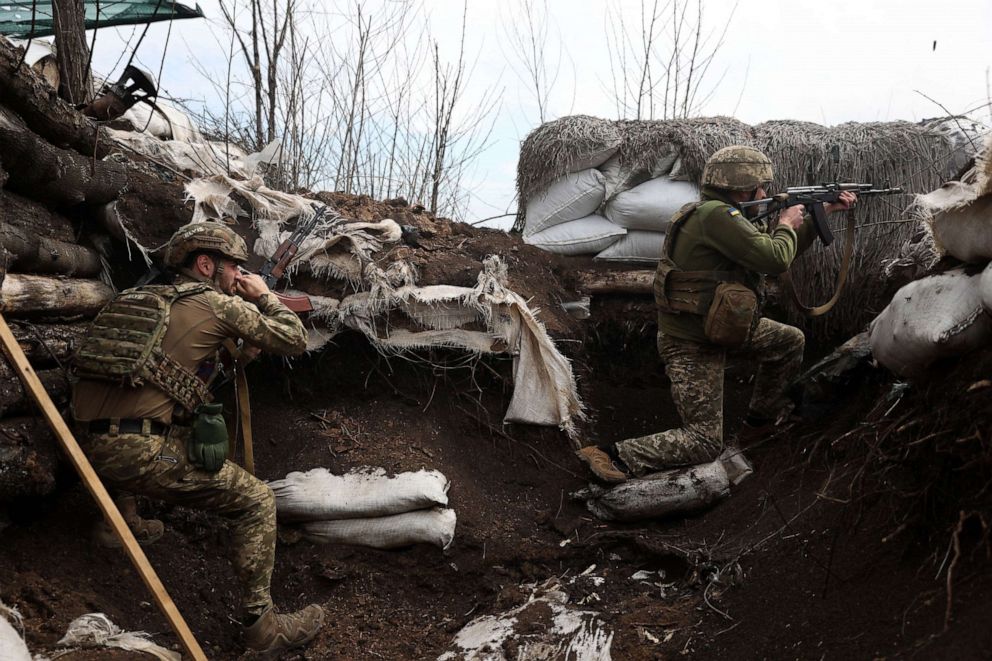
The administration has taken pains to underscore this distinction, given Russia's warning that advanced systems would be seen as an escalation.
"We are mindful of the escalation risks in everything we're doing with this," Under Secretary of Defense for Policy Colin Kahl told reporters Wednesday. "We've been mindful of that, but at the same time, Russia doesn't get a veto over what we send to the Ukrainians."
Biden's announcement came a day after he sparked confusion during a quick exchange with a reporter outside the White House.
Asked if he planned "to send long-range rocket systems to Ukraine," Biden only responded, "We're not going to send to Ukraine rocket systems that can strike into Russia."
White House officials clarified they were still considering sending longer-range systems to Russia. Ultimately, the U.S. stopped short of sharing the longest-range ammunition that could be fired by the HIMARS.
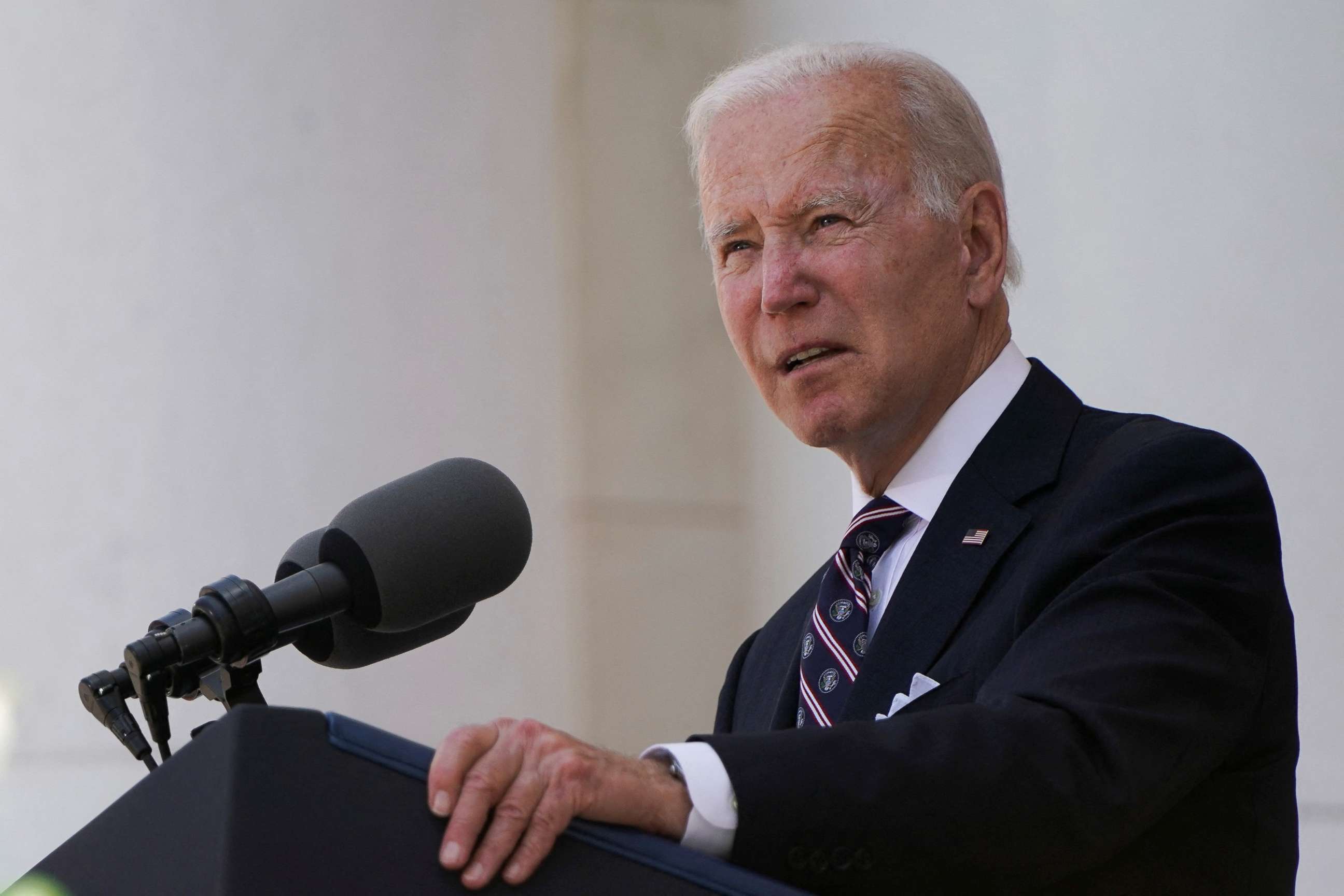
As part of the $700 million package, the U.S. will be sending four HIMARS to Ukraine along with precision ammunition. The systems had been pre-placed inside Europe in anticipation of Biden granting Ukraine's request for the systems so as to speed up the transfer, according to Kahl.
The Defense Department also created an accelerated three-week training program to teach Ukrainians how to employ and maintain the systems outside of Ukraine. By comparison, U.S. service members normally go through closer to six months of training on HIMARS.
"I will say the Ukrainians have proven time and time again to be extraordinarily ingenious and quick learners. And so I think we've been able to speed things up in the training cycle based on how quickly the Ukrainians have learned systems and been able to integrate them into their activities," he said.
In his Tuesday New York Times essay, the president stressed the action was not intended to start a broader conflict, and said the U.S. was "not encouraging or enabling Ukraine to strike beyond its borders" – nor did it "want to prolong the war just to inflict pain on Russia."
"We do not seek a war between NATO and Russia," Biden wrote. "As much as I disagree with Mr. Putin, and find his actions an outrage, the United States will not try to bring about his ouster in Moscow.
"So long as the United States or our allies are not attacked," he continued, "we will not be directly engaged in this conflict, either by sending American troops to fight in Ukraine or by attacking Russian forces.




